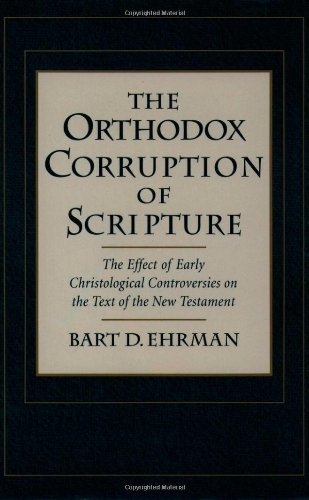"Exploring the close relationship between the social history of early Christianity and the textual tradition of the emerging New Testament, Bart Ehrman examines how early struggles between Christian "heresy" and "orthodoxy" affected the transmission of the documents over which, in part, the debates were waged. In the process, he provides a valuable analysis of significant textual problems that continue to puzzle New Testament scholars." "Ehrman argues that scribes of the second and third centuries occasionally altered their sacred texts for polemical reasons. In order to make them support established christological doctrine, scribes imported orthodox motions into passages, or modified texts that might have lent support to heretical views. Closely examining three such heresies, Ehrman identifies how the proto-orthodox response affected the evolving texts of scripture, devoting a chapter to adoptionists like the Ebionites, who claimed that Christ was a man but not God; one to docetists like Marcion, who claimed that Christ was God but not a man; and another to Gnostics like the Ptolemaeans, who claimed that Christ was two beings, one divine and one human." "The first full-length work to evaluate textual data with reference to specific controversies between orthodoxy and heresies, Ehrman's thorough and incisive analysis makes a vital contribution to our understanding of the social and intellectual history of early Christianity. In addition, it raises intriguing questions about the relationship of readers to their texts - especially in an age when scribes could transform the documents they reproduced to make them say what they were already thought to mean, effecting thereby the orthodox corruption of Scripture."--BOOK JACKET.
Authors
Bart Ehrman
Additional Info
- Publisher: Oxford University Press
- Format: Paperback
- ISBN: 9780195102796
No copies of this item are currently available.
